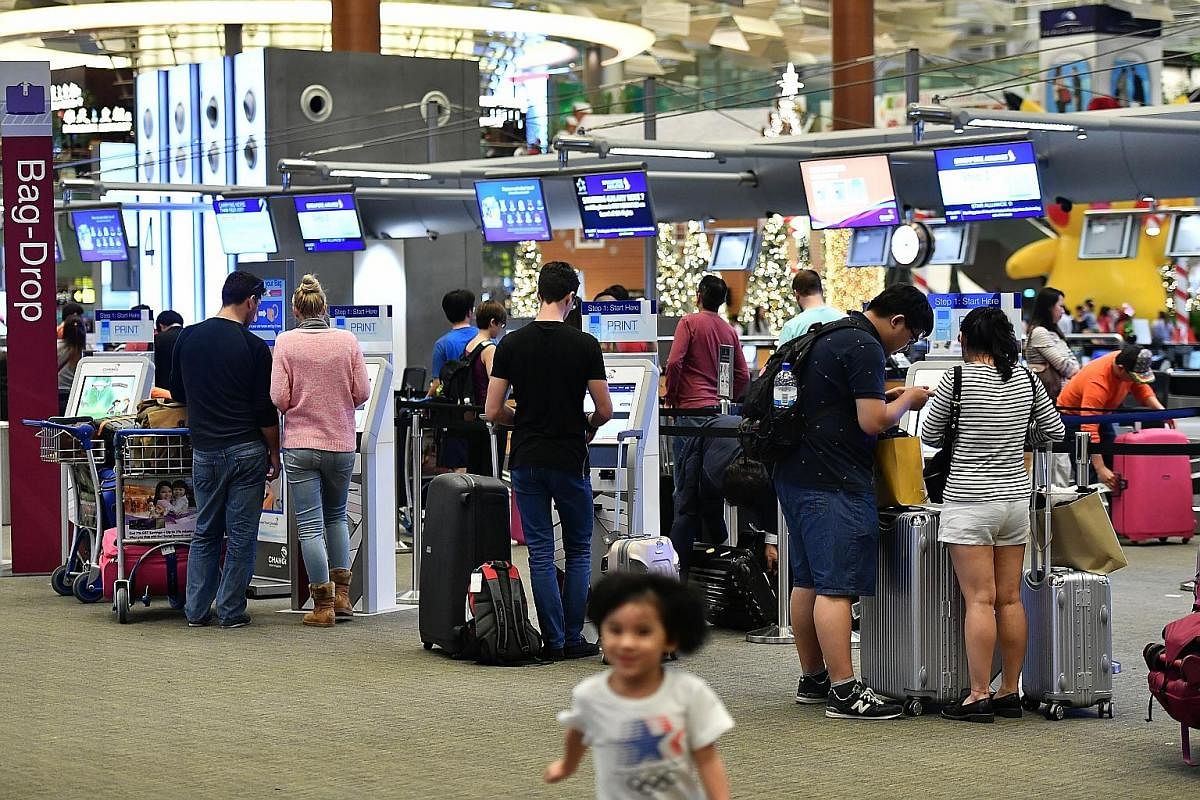What to do if you are caught up in a terrorist attack while travelling?
Buy travel insurance for peace of mind and keep abreast of current events during a trip

Spurred by the increasing frequency of terrorist attacks around the globe, it seems that more Singaporeans are buying travel insurance than before.
Ms Alicia Seah, director of marketing and communications at tour agency Dynasty Travel, says 95 per cent of Dynasty's clients now buy insurance, up from about 75 per cent two years ago.
"Travel insurance is a fraction of the total cost of the trip, so many travellers are willing to fork out the additional cost to buy peace of mind," she says, adding that the 5 per cent who do not buy travel insurance are either travelling short distances to places such as Malaysia or Thailand or have simply forgotten.
AIG Singapore expects a 10 per cent increase in demand for premium travel products, which offer a greater amount of coverage, including insurance for terror attacks, within the next year.
While travel insurance policies offered by AIG Singapore, AXA and NTUC Income have specific clauses for terrorism, most will cover unforeseen circumstances arising from acts of terrorism.
This includes incurred medical expenses, emergency medical evacuation, lost baggage and delays. Buyers of travel insurance also often have access to a 24-hour emergency hotline.
However, the extent of coverage will vary depending on policy, which travellers should examine carefully. AXA, for instance, covers a full spectrum of terrorism-related incidents, including the use of nuclear, chemical and biological substances, while other insurers may not.
Mr Chelijyaan Ho, general manager of financial advisory group Thinkers Alliance, says travellers should be especially careful when travelling with those aged 70 or older, who may not be covered, or with young children, who tend to receive different levels of coverage.
Experts say travel insurance - which can cost from $20 to $200 a person a trip depending on destination, length of travel and coverage level - is worth the additional cost.
After all, at AIG Singapore, travel insurance claims relating to socio- political volatility - when travel is disrupted as a result of political instability, coup d'etat, increased border security and terrorist attacks - have more than doubled in the past three years.
Insurance is especially necessary as Singaporeans show no signs of slowing their travel plans.
Despite the recent terrorist attacks in Manchester, London and Paris, travel agencies including Chan Brothers Travel, The Travel Corporation, Dynasty Travel and STA Travel have not experienced a drop in bookings or requests for postponement or cancellation from customers.
It is a common misconception, says Mr Ignatius Chng, AIG Singapore's vice-president and head of Group Personal Insurance, that trips to nearby countries present fewer risks.
A survey conducted by the insurance giant in 2015 found that one in three travellers here do not buy travel insurance when they go on short trips to neighbouring countries such as Malaysia and Thailand.
A survey commissioned by the Singapore Tourism Board last year similarly revealed that about 20 per cent of more than 400 respondents did not buy travel insurance for their most recent trip, citing the short length of the trip and travel to what they felt were "low-risk" destinations.
Dr Rohan Gunaratna, professor of security studies at the S. Rajaratnam School of International Studies at Nanyang Technological University, says it is no longer possible to say only certain countries are affected by terrorism.
"Terrorism is the No. 1 security threat to many countries around the world and travel insurance, which covers terrorism, is important," he says. "There will never be no risk, but you can take steps to minimise the risk of travel."
For an upcoming trip to Japan, IT executive Jim Lee Wong, 35, bought travel insurance for himself and his family for the first time.
"After recent news about terrorist attacks, I'm more worried about unforeseen circumstances," he says. "It is better to be covered, to play it safe and have help if something happens to me or my parents while we're travelling.
"Having insurance makes me feel much better," says the bachelor.
To help travellers protect themselves and their travel plans from the event of a terrorist attack, here is a guide to what to do before your trip and while you are away.
Join ST's Telegram channel and get the latest breaking news delivered to you.
A version of this article appeared in the print edition of The Sunday Times on June 11, 2017, with the headline What to do if you are caught up in a terrorist attack while travelling?. Subscribe

